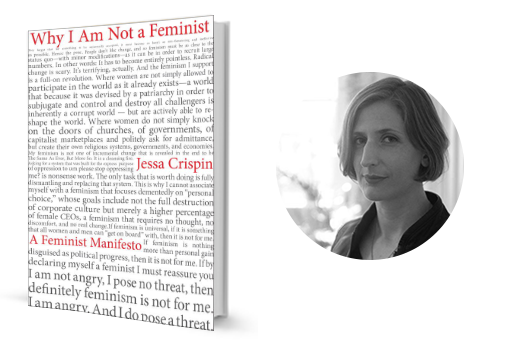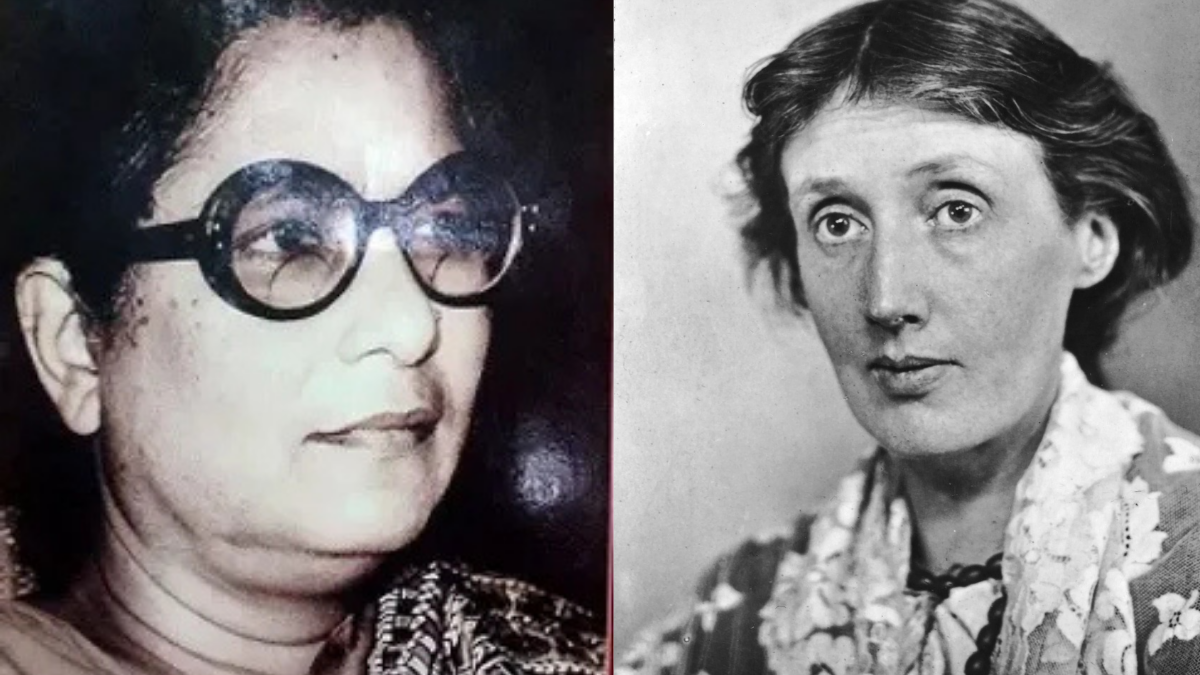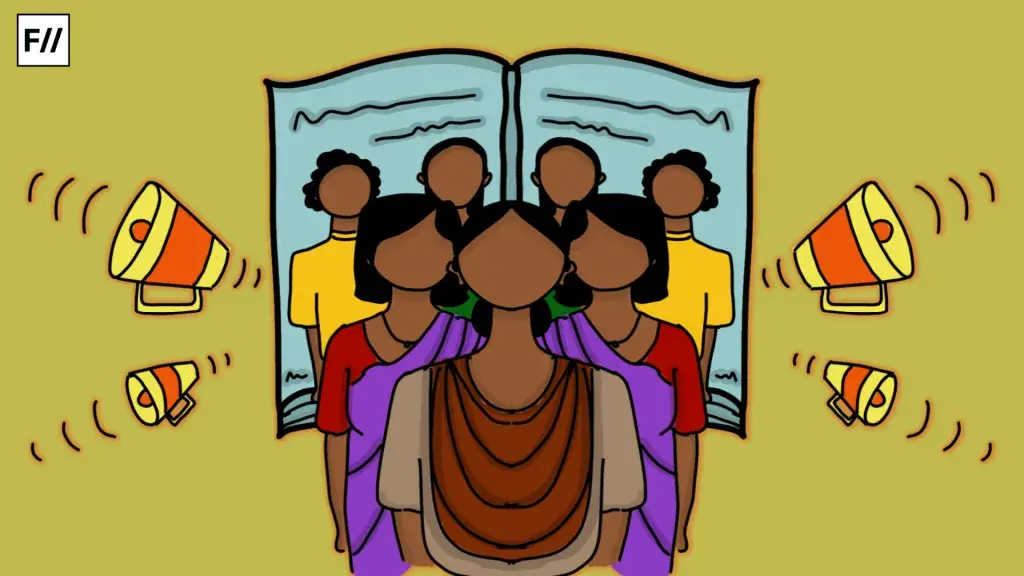“Feminism is – and should be – a movement, not an excuse to stand still.”
Why I am not a Feminist is a book by Jessa Crispin that aims at being a call for revolution. It accuses the feminist movement of obliviousness, irrelevance, and cowardice—and demands nothing less than the total dismantling of a system of oppression. While Jessa Crispin successfully points out the flaws of the current feminist movement, she also comes across as hypocritical and often contradicting her own arguments.
She has largely based her claims on the analysis of Western feminism, especially the “middle-class white women’s feminism”. This is in itself reeks of hypocrisy because, on one hand, she talks about including the problems of women of different races, classes, religions into her agenda, and yet refuses to address feminism that exists outside of the West. There are other countries outside of the western realm, where women are still fighting for basic rights, where local feminists are working towards making the lives of women better. These countries need feminism, so I don’t think that debunking the whole feminist movement would really help in any way.
This is in itself reeks of hypocrisy because, on one hand, she talks about including the problems of women of different races, classes, religions into her agenda, and yet refuses to address feminism that exists outside of the West.
That being said, it is always for a movement to receive criticism, and Jessa Crispin does offer some great criticism.
She writes, “With all the focus now on opinion and personal narratives (over theory or even fact), it tells young feminists that they do not have to study their own collective and intellectual history. With all of the focus on lifestyle, contemporary feminism becomes just another thing to buy.” This statement does hold truth because hardly anyone ever reads the history of feminism. And with the image of feminism becoming “trendy”, it has often been used by the consumerist market as a strategy to sell their product, and at the same time making the buyer feel good about themselves.
Another good point that it makes is that women acquiring powerful positions in the already existent patriarchal system because it won’t actually dismantle the patriarchy. It is important to question what is being done with that power.
“The issues most pressing for lower-income women, like affordable abortions, childcare, health insurance, and health care, public housing, and so on, have slipped off the feminist radar.” Perhaps feminism isn’t doing as much it could, but I wouldn’t say that these issues have slipped off the radar. The problem largely is that Crispin is just addressing one group that calls themselves ‘feminist’, the ones that use the label unnecessarily to justify their actions that has nothing to do with feminism. Anyone calling themselves feminist does not make them one.
There are a lot of issues with this book too. For example, Crispin says, “It’s a lot of anger, a lot of body hair. In rejecting this version and refusing to put it into context, feminism helps to erase its own radical past. By trying to distance themselves from the bra-burning, hairy-armpit bogeywoman, they disown and forget all the good this generation of women did.”
Crispin is talking about the second wave feminists here, like Andrea Dworkin and Shulamith Firestone.
First of all, I don’t think that the work of these feminists is not being enough recognition. We still read their works in school. But we also criticize what we find wrong with it, just like Crispin here is criticizing what is wrong with the contemporary feminist. “Like all writers and intellectuals, not every word Dworkin wrote was magic, but the entirety of her work seems to have been tossed out by today’s feminists, simply because they disagree with some of her more extreme theories.” That’s all she has to say about their “extreme theories”. She doesn’t address the transphobia and racism in their works at all.
She says, ” Not every woman, or man, is ambitious. Not every woman is determined to make her mark on the world. Not every woman gets satisfaction out of working eighty hours a week just to watch some young Harvard asshole get promoted above her to a job she didn’t really want but would pay her a little better. Not every woman longs to participate in the consumerist mindfuck that is the culture we live in, filling the holes in her heart and soul with shoes and limited edition crop tops from Topshop.” Fair enough. Feminism also recognizes that people should be allowed to make choices. I don’t know what kind of feminism is she criticizing here (second wave, maybe?). But then she goes on to say,
Also read: Book Review: The Apology By Eve Ensler
“All of the excuses we make for why we cannot possibly change our lives, why we cannot become radicals (“I have student loans, so I need this job,” “… but I love him,” “I have dreamed about owning a house and becoming a mother and getting married since I was a little girl and it would really be disappointing if suddenly I had to understand what property ownership really is, etc., etc.”) brought before Dworkin’s point of view are instantly rendered bullshit.” Now, according to her getting married is an excuse to not be a radical.
Also, there is a chapter that starts with, “I just want to be clear that I don’t give a fuck about your [men’s] response to this book. Do not email me, do not get in touch,” and ended with, “Men can and must participate in this project [feminism].” I don’t know what it is if not hypocrisy.
Feminism exists outside of the media. And it is at different stages in different countries. And when you just take up your “white feminism” or “marketplace feminism”, and equate it with feminism worldwide, it speaks about your ignorance.
She has constantly criticized universal feminism. But what universal feminism does for us, is that it allows women to fight for equal rights in whatever circumstances they are. Getting married should not mean that they should be denied equality. Universal feminism also makes feminism reach to people of different races and religions. And the emerging “intersectional feminism” works for these issues.
I agree that the commodification of feminism is not right. It should not just be a label that someone can take up to be cool. But at the same time, there is a difference between celebrities who take up the feminist label and are doing something to deserve, and celebrities who take up the label to hide their misogynistic, racist selves. Both are not the same.
Also read: Book Review: Not Just Another Story By Jhimli Mukherjee Pandey
And yet there is something greater than just celebrities being feminist and involvement of pop culture at question when we talk about feminism. Feminism exists outside of the media. And it is at different stages in different countries. And when you just take up your “white feminism” or “marketplace feminism”, and equate it with feminism worldwide, it speaks about your ignorance. You cannot render the whole feminist movement as ineffective just because it has reached an ineffective place in certain regions.
Featured Image Source: Kramers
About the author(s)
Shravya Shruti is currently pursuing masters in English from Delhi University. She can be often found curled up with a good book, or trying to hide from people, or having an existential crisis. Sometimes all at once.




